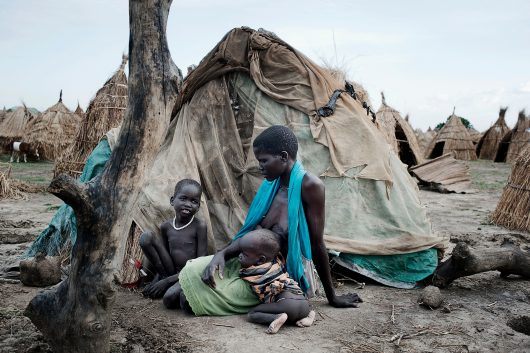3 Ways Defunding Foreign Aid Could Hurt US Diplomacy

On March 16, 2017, President Trump released his new proposed budget, which includes cuts of 28 percent to the base budget for the State Department and USAID, along with 37 percent cuts to the Overseas Contingency Operations Fund. This fund aids in disaster response and emergency needs to many struggling and developing countries. These budget cuts will provide a notable increase in military spending by $54 billion next year.
The new proposed budget will undergo substantial changes before it can be passed through Congress, but the skepticism that lies within President Trump’s budget primarily revolves around defunding foreign aid. Trump’s new proposed budget will serve as a guide for Congress, which will draft its own budget.
President Trump claims a desire to maintain support for U.S. diplomacy, which he views as a major asset to the State Department. In fulfilling campaign promises, including spending money at home rather than in other countries, defunding foreign aid could lead to severe consequences for U.S. diplomacy.
Specifically, the major concerns of this budget are that it will cut deeply into U.S. diplomacy and hurt the following three efforts: combatting terrorism, providing American jobs through developing world markets and aiding those who are experiencing hardships in developing countries.
- In order to combat terrorism, the U.S. must tackle the tough economic and political problems that enable terrorism to thrive in developing countries. Although a well-funded military is important for U.S. national security, foreign aid is a less costly method to protect the interests of all Americans. Foreign aid helps developing countries invest in law enforcement to manage terror within their borders. It also helps teach farmers new and innovative techniques so fewer people will starve. Aid is also used to make long-term investments in the global economy.
- Foreign aid has a substantial impact on the U.S. market by creating American jobs. Many of these countries offer the greatest trade growth potential, which makes it imperative to cultivate these markets. In order to benefit from the potential trade agreements that would create American jobs at home and abroad and further enhance the global economy, the U.S. must turn struggling and developing countries into potential consumers.
- The U.S. has always been at the forefront of providing humanitarian relief to developing countries, but defunding foreign aid takes the U.S. out of these efforts in creating a stable and peaceful world. Recently, Secretary of State Rex Tillerson stated that other countries must step up to provide the missing share of disaster relief for these struggling countries.
Currently, the U.S. provides less than one percent of its federal budget for foreign aid, which is low as a percentage of its economy, but large in dollar amounts. This illustrates how the U.S. can truly impact the lives and economies of many developing countries.
In pressing President Trump to reconsider his proposed budget cuts, the International Affairs Budget includes programs that consist of U.S. State Department activities and global efforts that promote global stability and ensure the safety of all Americans. This budget includes humanitarian relief efforts, trade and economic relationships and building health clinics and schools in developing countries.
In its support of combating terrorism, creating American jobs and aiding the struggles and hardships felt throughout many developing countries, the International Affairs Budget invests in not only the future of other countries but also has a lasting impact on American lives.
– Brandon Johnson
Photo: Flickr
